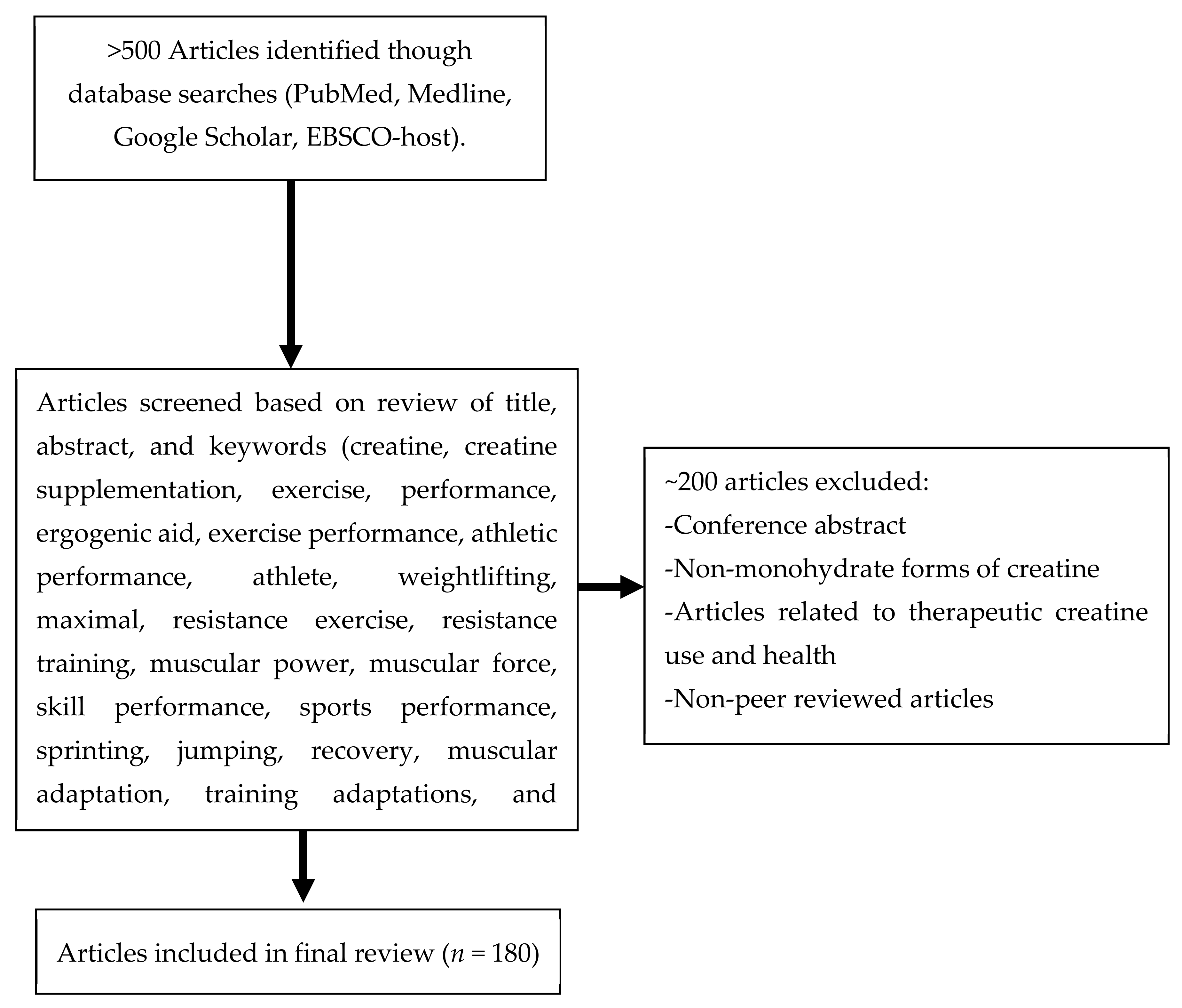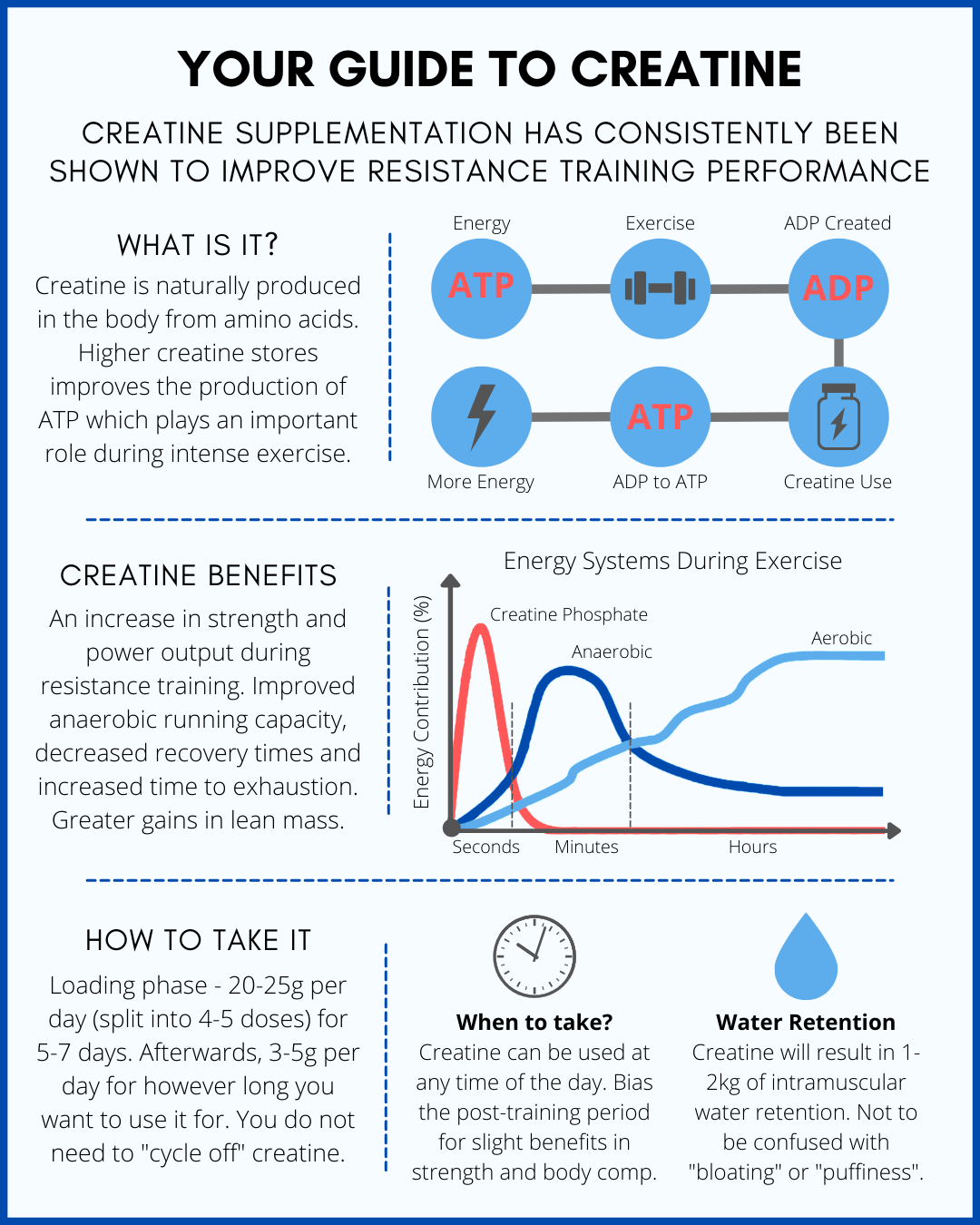
Creatine In Sports Nutrition: Tailoring Use By Sport
Share
Have you ever wondered what sets top athletes apart when it comes to their nutrition strategies? With an overwhelming number of supplements available, understanding which ones provide a genuine edge can be tricky. One of the most widely researched and used supplements in sports nutrition is creatine. Often touted for its performance-enhancing properties, creatine is not a one-size-fits-all solution. This article dives into how creatine can be tailored for different sports, helping you maximize your performance whether you're on the track, field, or in the gym.

Understanding Creatine
What is Creatine?
Creatine is a naturally occurring substance found in muscle cells. It helps your muscles produce energy during high-intensity exercise. Although your body produces some creatine on its own, you can also obtain it from dietary sources like red meat and fish, or through supplementation.
How Does Creatine Work?
Creatine works by increasing the phosphocreatine stores in your muscles. Phosphocreatine helps in the rapid production of ATP, the primary energy carrier in all cells. During short bursts of intense activity, like sprinting or lifting weights, your body relies on ATP for immediate energy. By supplementing with creatine, you enhance your ability to produce ATP quickly, potentially boosting your performance.
Types of Creatine Supplements
While creatine monohydrate is the most common and well-researched form, there are several other types available:
| Type | Description |
|---|---|
| Creatine Monohydrate | The most studied and widely used form. Effective and affordable. |
| Creatine Ethyl Ester | Supposedly has better absorption, though evidence is limited. |
| Buffered Creatine | Claims to reduce side effects like bloating, but more research is needed. |
| Liquid Creatine | Convenient but less stable and less effective. |
| Creatine Nitrate | May offer enhanced absorption, though research is ongoing. |
Though there are multiple forms, creatine monohydrate remains the gold standard due to its efficacy and cost-efficiency.
Benefits of Creatine in Sports
Increased Power and Strength
One of the primary reasons athletes use creatine is to increase power and strength. Studies have shown that creatine supplementation can lead to significant gains in muscle strength and power output, making it particularly beneficial for sports that require explosive movements like weightlifting, football, and sprinting.
Enhanced Muscle Recovery
Creatine also aids in muscle recovery. By replenishing your ATP stores more rapidly, you can recover quicker between sets and workouts. This is especially beneficial for athletes engaged in high-intensity interval training (HIIT) and endurance sports where recovery between efforts is crucial.
Improved Cognitive Function
Recent research suggests that creatine may also enhance cognitive function. This can be beneficial not just in sports but in any high-stress, mentally demanding situation. Improved cognitive function, including better memory and concentration, can make a significant difference in sports that require strategic thinking and quick decision-making, such as basketball and soccer.

Tailoring Creatine Use by Sport
Weightlifting and Bodybuilding
Loading Phase
Weightlifters and bodybuilders often use a loading phase to saturate their muscles with creatine quickly. This involves taking about 20 grams of creatine per day, divided into 4-5 doses, for the first 5-7 days.
Maintenance Phase
After the loading phase, a maintenance dose of 3-5 grams per day is usually recommended. This helps maintain elevated creatine levels in the muscles, supporting ongoing gains in strength and muscle mass.
Timing
For best results, take creatine both pre- and post-workout. Some studies suggest that splitting the dose can maximize absorption and effectiveness.
Endurance Sports
Lower Dosage
Endurance athletes may benefit from a lower dose of creatine, around 3 grams per day. This amount is enough to improve performance without the potential for added water weight, which can be a drawback in activities like long-distance running or cycling.
Combine with Carbohydrates
Combining creatine with carbohydrates can enhance its uptake. This can be particularly useful for endurance athletes who also require significant carbohydrate intake to fuel their prolonged efforts.
Team Sports
Periodized Approach
Team sport athletes often go through varying phases of training intensity. A periodized approach to creatine supplementation can help maximize benefits. For example, higher doses can be taken during off-season strength training, while maintenance doses can be used during the playing season.
Focus on Recovery
Given the stop-start nature of many team sports, creatine's role in muscle recovery is invaluable. Faster recovery means better performance in both training and games, reducing the risk of fatigue-related injuries.
High-Intensity Interval Training (HIIT)
Regular Dosing
HIIT athletes benefit from regular, consistent dosing of 3-5 grams per day. This helps ensure that their ATP stores are always replenished, allowing them to perform high-intensity efforts repeatedly.
Post-Workout
Taking creatine post-workout can aid in quicker recovery, which is crucial for athletes who engage in HIIT multiple times per week.
Swimming
Water Retention Concerns
Swimmers need to be cautious about water retention, a common side effect of creatine. Keeping the dosage lower, around 2-3 grams per day, can help mitigate this issue while still providing performance benefits.
Cyclical Use
Using creatine in cycles—periods of supplementation followed by breaks—can also be beneficial. This strategy helps in avoiding any potential discomfort or performance detriments associated with water retention.
Soccer and Basketball
Skill and Stamina
Sports like soccer and basketball require a mix of skill, agility, and stamina. Here, creatine can enhance short bursts of speed and power while aiding in quick recovery. A consistent daily dose of 3-5 grams can make a significant difference.
Pre-Game Supplementation
Taking creatine a few hours before a game can provide an extra boost during crucial moments, such as sprinting down the field or making a powerful jump shot.
Dosage and Safety
Appropriate Dosage
It's essential to stick to the recommended dosages for your sport and individual needs. Over-supplementation can lead to side effects like bloating, gastrointestinal discomfort, and potential kidney issues.
Safety Concerns
Creatine is generally considered safe for most people when taken within recommended dosages. However, it's always a good idea to consult a healthcare professional before starting any new supplement regimen, especially if you have underlying medical conditions.

Timing Your Creatine Intake
Pre-Workout
Consuming creatine before a workout can provide immediate energy benefits. You might experience better endurance during intense exercise and feel more powerful during strength training.
Post-Workout
Taking creatine after a workout can enhance muscle recovery and growth. This is because your muscles are in a state of enhanced nutrient uptake post-exercise.
Split Dosing
Some athletes prefer to split their daily creatine dose between pre- and post-workout to maximize both immediate energy and recovery benefits.
Combining Creatine with Other Supplements
Protein
Combining creatine with protein can be especially beneficial for muscle growth and recovery. Many athletes take a creatine-protein shake post-workout to get the best of both worlds.
Caffeine
Though creatine and caffeine are both effective on their own, some studies suggest they might counteract each other's benefits when taken together. Experimenting to see what works best for you may be the best approach.
Beta-Alanine
Beta-alanine and creatine can work synergistically to improve performance, especially in high-intensity sports. While creatine enhances ATP production, beta-alanine improves muscle endurance by buffering acid build-up.

Long-Term Use and Cycling
Long-Term Use
Long-term use of creatine is generally considered safe, with studies showing no adverse effects over periods of up to five years. However, continuously monitor how your body responds and consider periodic blood tests to ensure everything is functioning optimally.
Cycling
Some athletes prefer to cycle creatine, taking it for a few months and then taking a break. This strategy can help prevent your body from becoming too accustomed to the supplement, ensuring it remains effective.
Potential Side Effects
Water Retention
One common side effect is water retention, leading to a temporary increase in body weight. While this is usually not a concern, athletes in weight-class sports may need to consider this factor.
Gastrointestinal Issues
Some people experience gastrointestinal discomfort when they start taking creatine. This can often be mitigated by splitting the dose throughout the day and ensuring adequate hydration.
Kidney Concerns
While earlier studies raised concerns about kidney damage, more recent research suggests that creatine is safe for healthy individuals when taken at recommended dosages. However, those with pre-existing kidney conditions should consult a healthcare professional.

Myths and Misconceptions
Creatine is a Steroid
One common myth is that creatine is a steroid. This is entirely false. Creatine is a natural substance found in foods and produced by the human body, and it does not have the same effects or risks associated with steroids.
Only Useful for Bodybuilders
While creatine is popular among bodybuilders, it benefits a wide range of athletes. From sprinters to swimmers, many can see performance improvements with creatine supplementation.
Immediate Results
Some people expect immediate results from creatine, but it can take several days to weeks to see its full effects. Patience and consistent use are key.
Real-World Success Stories
Olympic Athletes
Many Olympic athletes have vouched for the performance-enhancing benefits of creatine. From sprinters to weightlifters, creatine has played a role in breaking records and winning medals.
Professional Sports Teams
Professional teams in sports like football, basketball, and soccer often include creatine as part of their nutrition plan. By enhancing power and recovery, creatine helps athletes stay at the top of their game.
Conclusion
Creatine as a sports supplement is a versatile and effective tool for athletes across various disciplines. By understanding how to tailor its use to your specific sport, you can maximize its benefits and take your performance to the next level. Whether you are lifting weights, running marathons, or playing team sports, a strategic approach to creatine supplementation can help you achieve your goals.
By considering factors like dosage, timing, and combination with other supplements, you'll be better equipped to make informed decisions. As with any supplement, consulting a healthcare professional and listening to your body's responses is crucial. With the right approach, creatine can be a valuable component of your sports nutrition strategy, helping you reach new heights in your athletic endeavors.
